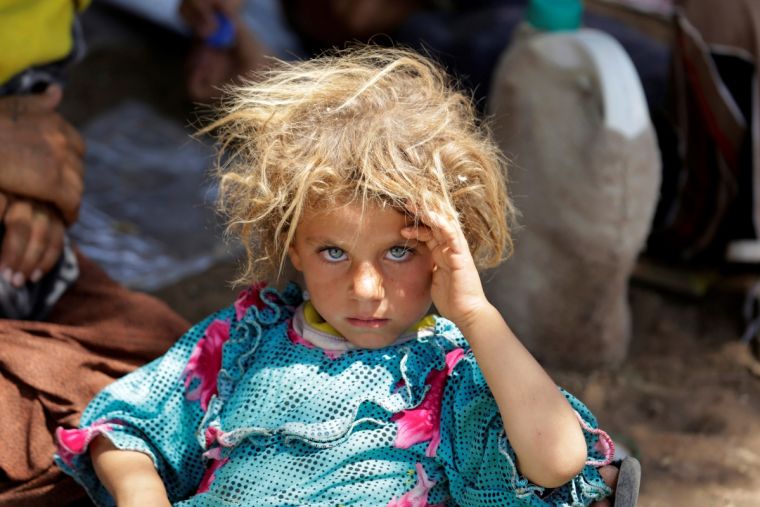Islamic State is committing genocide against Yazidis, says UN

Islamic State is committing genocide against the Yazidis, according to a new report by the United Nations.
There is enough evidence for an indictment and the report is in effect a "road map for future prosecution", a press conference launching the report was told.
The paper contains evidence of genocide, or a systematic attempt to destroy the Yazidis.
The report They Came to Destroy: ISIS Crimes Against the Yazidis, by the independent International Commission of Inquiry on the Syrian Arab Republic, says abuse of Yazidis amounts to crimes against humanity and war crimes.
"Genocide has occurred and is ongoing", said Paulo Pinheiro, chair of the commission. "ISIS has subjected every Yazidi woman, child or man that it has captured to the most horrific of atrocities."
Thousands of Yazidi women and girls in Syria are still being held captive and abused, often as slaves. The report details how Yazidis were forced to relocate to Syria after ISIS attacked Iraq's Sinjar region in August 2014.
The commission interviewed survivors, religious leaders, smugglers, activists, lawyers, medical personnel and journalists.
The report finds that Islamic State tried and continues to try to "erase" the Yazidis through killings, sexual slavery, enslavement, torture, inhuman and degrading treatment, forcible transfer and living that brings about a slow death.
By forced marriage and sexual slavery, the terrorists are preventing more Yazidi children from being born. Adults are being forcibly converted to Islam, Yazidi men and women are separated and Yazidi children are stolen from their own families and placed them with ISIS fighters, the report says.
Islamic State separated Yazidi men and boys aged over 12 from the rest of their families, and killed those who refused to convert, in order to destroy their identity as Yazidis.
Women and children often witnessed these killings before being forcibly transferred to locations in Iraq, and thereafter to Syria, where the majority of captives remain.
Thousands of women and girls, some as young as nine, have been sold in slave markets, or souk sabaya, in the Syrian governorates of Raqqah, Aleppo, Homs, Hasakah and Dayr Az- Zawr.
The women are held in sexual slavery and in other types slavery, the report says.
Yazidi women and girls are constantly sold, gifted and willed between fighters. One woman, who estimated she had been sold 15 times, told the commission: "It is hard to remember all those who bought me."
Survivors who managed to escape described how they endured brutal rapes, often on a daily basis, and were punished if they tried to escape with severe beatings, and sometimes gang rapes, according to Commissioner Vitit Muntarbhorn.
Many Yazidi women and girls are forced to perform household tasks, and are denied adequate food and water by their fighter-owners.
The commission also heard accounts of how some Yazidi women and girls committed suicide to escape the cruel torment.
Young children bought and held with their mothers are beaten and are often aware of the abuse that their mothers are suffering.
Yazidi boys older than seven are forcibly removed from their mothers' care and transferred into terror camps in Syria where they are indoctrinated and receive military training.
One boy, taken for training in Syria, was told by his Islamic State commander: "Even if you see your father, if he is still Yazidi, you must kill him."
Commissioner Carla Del Ponte said: "ISIS has made no secret of its intent to destroy the Yazidis of Sinjar, and that is one of the elements that allowed us to conclude their actions amount to genocide."
The Islamists regard Yazidis as infidels and have cited their faith as the basis for the August 2014 attack. Islamic State has referred to the group as a "pagan minority whose existence Muslims should question", adding that "their women could be enslaved as spoils of war".
The commission called for the United Nations Security Council to refer urgently the situation in Syria to the International Criminal Court, or to establish an ad hoc tribunal to prosecute the myriad of violations of international law committed during the non-international armed conflict.
The commission also called for international recognition of the genocide, and stated that more must be done to ensure the protection of Yazidis and the funding of care, including psycho-social and financial support, for victims of the genocide.











